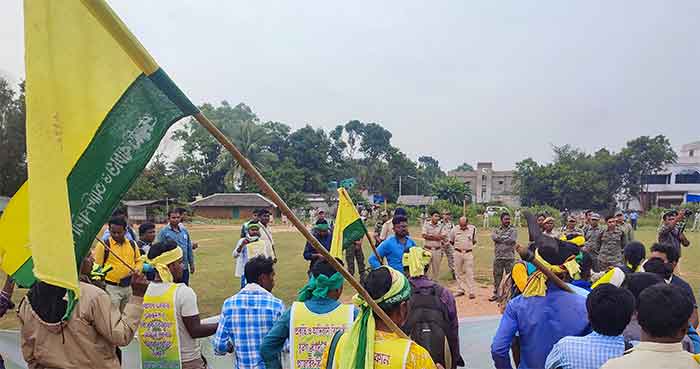
In December 2021, a Divisional Bench of Calcutta High Court reinstated the in-principle clearance of the Turga Pumped Storage Hydroelectric Project (TPSHP) proposed over an area of 292 hectares in the Ajodhaya hills of West Bengal and the eastern most part of the Chhotanagpur plateau. The judgement comes after the West Bengal government appealed against the single bench Order of 2018 which had completely set aside the in-principle clearance for the project on the grounds of false consent that had been created of Ajodhaya Gram Panchayat members. The protest of the Adivasi villagers against TPSHP thus dates back to 2017 and has been a long and tedious one comprising peaceful processions, marches, letters, deputations, awareness building and filing of a Writ Petition. However, on 23rd October 2022, more than hundred Adivasis from their hills took out a bike rally and travelled 150 kms to Jhargram to submit a deputation to the Minister of State, Forest Affairs, Birbaha Hansda, who has been making recent claims on social media platforms that he knows nothing about this agitation.
Once bitten twice shy?
The TPSHP is part of a larger project that was proposed by the West Bengal government as far back as 1979 over the four rivers- Bamni, Turga, Handu and Kathaljor, on which 8 dams in very close proximity were to come up. When the first, Purulia Pumped Storage Project (PPSP) station was set up (2002-2008) the villagers were promised a number of benefits but rather their fragile and complex forest-dependent existence was upset. Sachar Soren from Shahebdi village said “our grazing commons disappeared , not a single youth got employment from our community, no one got any sort of compensation.” From Puniasashan Gram Sabha, Sushatno Hembram added “Budhadeb Bhattachraya had come and promised free electricity within 5 kms from the project but we got nothing…even the security guards employed are from outside. ” Making matters worse, the locals had observed that their crops were getting affected due to shortage of water and the encounters with elephants increased; both among the many ills of the PPSP.
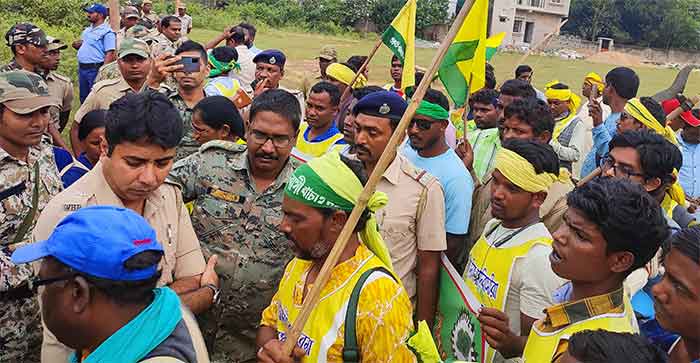
The proposed TPSHP will affect nearly 1600 people across 94 hamlets and will witness the cutting of more than 3 lakh trees. Ironically the Environment Impact Assessment declares the area to be a ‘no-elephant’ zone , whereas, they are spotted by villagers every few days and “Turga is the only dense forest left for the herds after large areas were deforested for PPSP” says Dhirendranath Chanre “not only our crops are damaged, a month back a man was killed in his village when the elephant entered and attacked.”
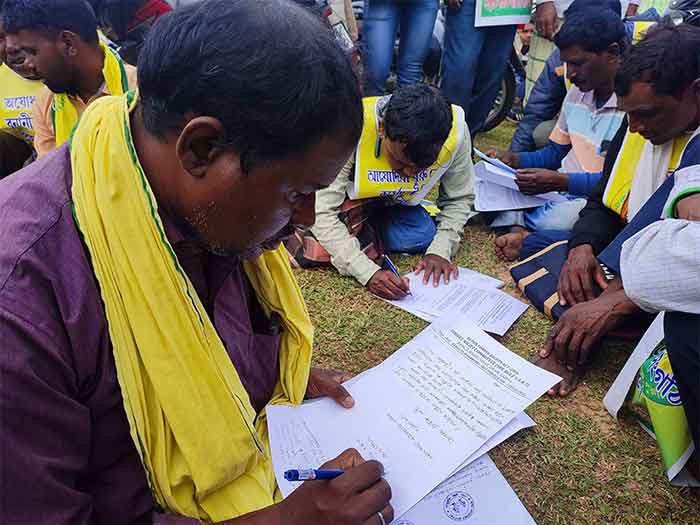
“The EIA should be prepared for all the projects together to assess the real cumulative social and environmental impact since they are part a very localised ecosystem but very strategically that is not being done” says Saurav, a long-time environment activist in the state. There have been earlier studies that have questioned the viability of such a mega project from sustainable ecology and energy proficiency perspectives.
Recent Developments
Sushil Murmu from Baruajara, one of the three petitioners of the case said that “the Court’s judgement is very clear that without the consent of the villagers the project cannot take place, but on July 24th 2022, the PPSP staff and the local OC and surveyors came with 8-10 cars to start some work. We immediately mobilised our villagers and gheraoed them for almost 5-6 hours asking them for the written permission to start work but they failed to show us anything.”
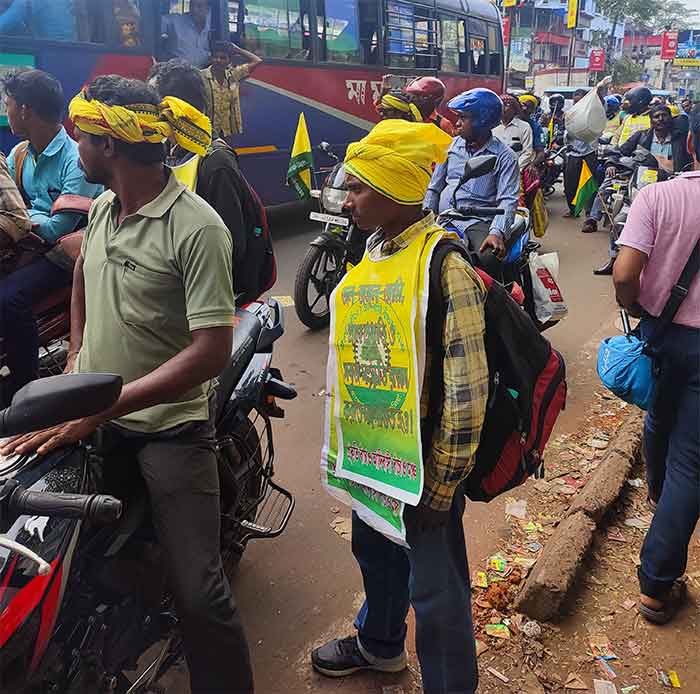
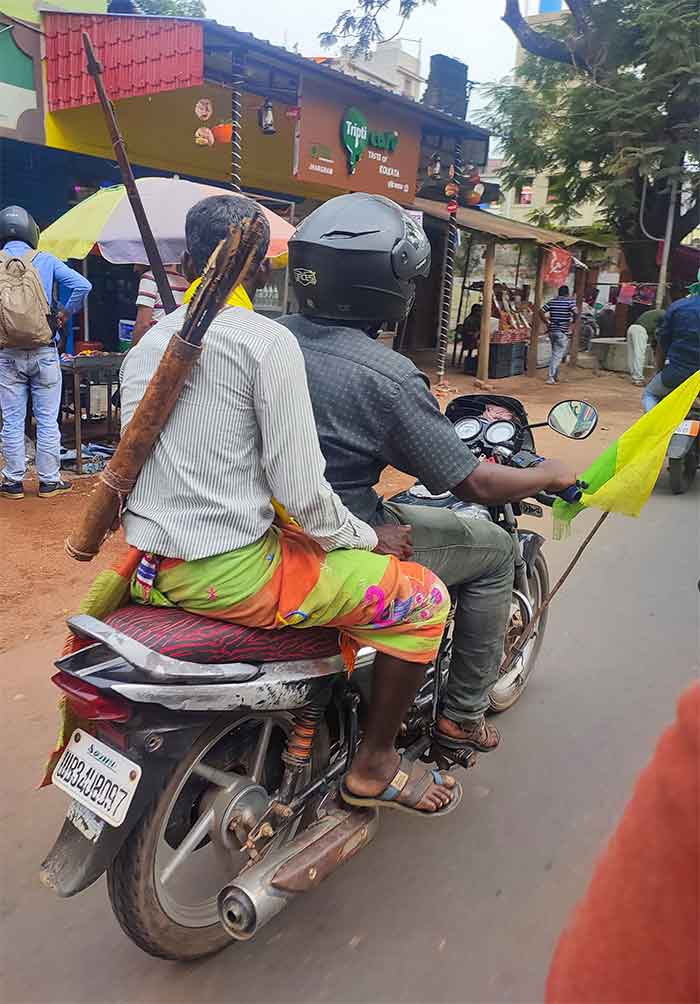
The PPSP along with the Block office has been carrying out programmes for the local population lately and the villagers are weary about their hidden agenda. The most recent effort has been to distribute goats but the villagers refused to take them on the grounds that what will they do with goats when they will have no land left to graze them.
Institutional Base & Collective Experiences
Initially it was the Bharat Jatak Majhi Paragana Mahal and the Yuva Sangathan that spearheaded the movement at the local level but it soon spread. The Bharat Jatak Majhi Paragana Mahal is is a widespread traditional social institution of the Santhals spread across 5 states. Basudeb Tudu who had joined the Bharat Majhi institution in 2002 and lives 90 kms from the hills had come to join the rally and when asked why had he come since the project would not effect him directly, he simply counter questioned “ every year on Budha Purnimaa , Adivasis from all over the country come to Ajodhaya to worship our hill God Marang Buru; what will happen once the project comes?” Many from the neighbouring forested and Adivasi inhabited districts of Jhargram, West Mednipore, Bankura, had also joined the rally and are attached with the movement. After the 2019 HC Judgement, with the past few years of groundwork, thirteen organisations/sangathans such as Bhumij Kalyan Samiti, Adivasi Socio Educational and Cultural Association etc came together at the state level to form the ‘Prakriti Bachao Adivasi Bachao Manch’ (Save Nature, Save Adivasi Platform). This platform has been mobilising and articulating at central level, various cases and issues some of which had already been taken up independently by local based organisations and activists; such as the Sivok Rangpo railway line in north Bengal, which has been met with strong protest from local villagers in Darjeeling and Kalimpong as well as from ecological experts. The major focus of the Manch is on state wide implementation of the Scheduled Castes and Other Traditional Forest Dwellers(Recognition of Forest Rights)Act (FRA 2006). The uptake of FRA is very poor in the state with less than 600 acres being recognised as community forest resource rights (CFR). In Ajodhaya hills, Gram Sabha formation started in 2019 and community claims have been submitted of 2 Gram Sabhas which comprise 5 hamlets. The spirit of the FRA is one of the only legal tools left to ensure tenure security through community formed and manged independent institutions in a place where PESA does not exist either.
Supen Hembram a teacher from Chatni, says he strongly condemns any sort of mobilisation on the grounds of religion, but is forced to remark “in the country building and demolishing of temples and mosques has become such a major issue then why is there no care when our jakiristhan (the traditional sacred place of Santhals) is going to be destroyed?”
Larger Significance
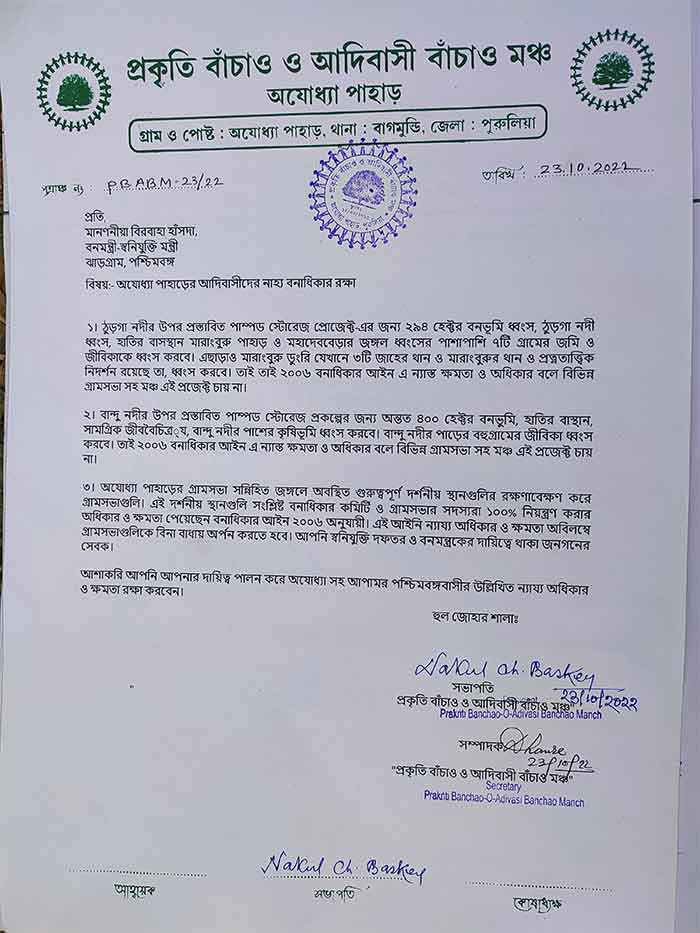
When asked that if the government does not pay heed to their demands then what would they do next, Lakhan Hasda a youth from the group said out load that they will launch a Hul like that of 1855.
The Minister failed to keep to his appointment on 23rd , and the group after raising slogans of their historical leaders- Birsa, Kanhu and Sidhu, demanding implementation of the FRA, demanding a stop to the corrupt practices that the Administration was indulging in; waiting and confronting the police for almost 2-3 hours; ultimately had to return to their hills as darkness began to fall. Their demands under the Prakriti Bachao Adivasi Bachao Manch and the individual Gram Sabhas were submitted to the PA of the Minister. Many youngsters in the group were happy though that along the journey they had generated awareness with their colourful pamphlets, posters, flags.
As the State is busy diluting environmental laws (Indian Forest Act 1927, Biological Diversity Amendment Bill 2021 etc) with the most recent controversial amendments to the Forest Conservation Act (1980) which seeks to complajodhyaAjodhaya Turga Projectetely do away with the need for consent of concerned communities; the peaceful but historically and culturally grounded agitations of Ajodhaya, reminds of the need to stop and rethink about forests as commodities.
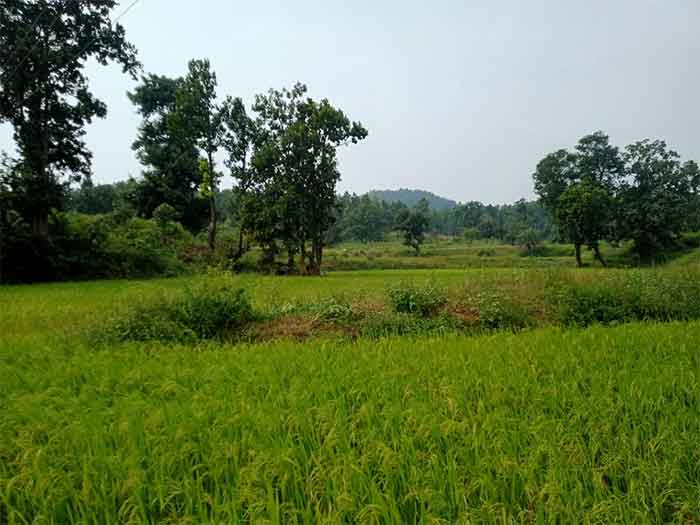
In the light of the upcoming Conference of Parties (COP 27) to the United Nations Framework Convention on Climate Change (UNFCC) which seeks to tackle various issues concerning the ‘climate emergency,’ Ajodhaya’s articulations ring out loud the need for a more dialogical process for arriving at ‘solutions’ since apparent clean and green energy production systems might not bring about environmental justice.
When will the messages and narratives of numerous such gatherings of Adivasi and other forest communities from across the globe be acknowledged, rather than carelessly forgotten and blatantly erased?
Mrinalini Paul is a PhD scholar (TISS, Mumbai) researching on the Jungle Mahals of Bengal









































